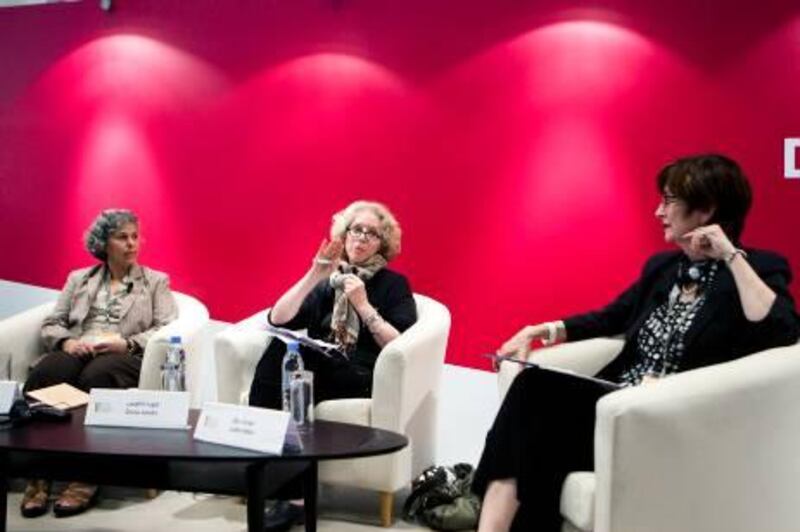ABU DHABI // Having more Emirati women in the media will bring broader news coverage and allow for more focus on topics considered sensitive, according to communication experts.
"It is extremely important that women engage in media. The media today has the power to create something or to kill something," the Iraqi writer Haifa Zangana said on the sidelines of the recent International Book Fair, at a debate entitled Outspoken that focused on the role of women in the press.
"No one is talking about the situation of women [in Iraq]. There is almost a complete blackout now, which is affecting everything."
Zangana, a novelist and former prisoner during Saddam Hussein's regime, has written several works on how the Iraqi occupation has impacted society in the country, particularly women. Her experiences reflect those of many others in the country, and through her work she hopes to relay her message loud and clear.
"We are experiencing [a paradox] where the older generation is more educated than the younger generation," Zangana said.
"Women need to be given the resources so they may continue educating their children at home. Since the occupation, there has been a huge decline in women's rights. The priority right now is survival - it is the basic necessity."
Dr Matt Duffy, assistant professor at the College of Communication and Media Sciences at Zayed University, agreed. "It is a delicate time for the press," he said. "And this is exactly why we need more Emirati journalists. UAE nationals are the voice of the people from the country. It's time to develop new Emirati media leaders."
The role the media plays in forming social perceptions and opportunities for change is evident, he said. It is crucial that women participate in the industry to represent the female population.
Young women have recognised this and are actively pursuing media careers, he said.
At Zayed University, for example, 112 students are enrolled in the College of Communication and Media Sciences, nearly a 20 per cent increase from last year.
Eighty-five per cent of those students are Integrated Strategic Communications majors, which includes a strong journalism component. Part of the challenge, Dr Duffy said, is convincing students to think of journalism as a career.
One factor is the perceived lack of freedom in reporting, which is a common concern shared by many students.
"There really isn't much of a culture of journalism as a noble profession in this country," Dr Duffy said. "We're trying to change that."
According to a survey conducted for Al Aan TV by YouGov, nearly 20 per cent of women in the UAE would like to work in media-related industries including journalism and television.
Despite the fact that it has become more acceptable, cultural sensitivities about women joining the media industry still exist.
Of the male respondents surveyed, nearly 30 per cent said that they would never allow their female relatives to pursue a job related to journalism, media or television.






